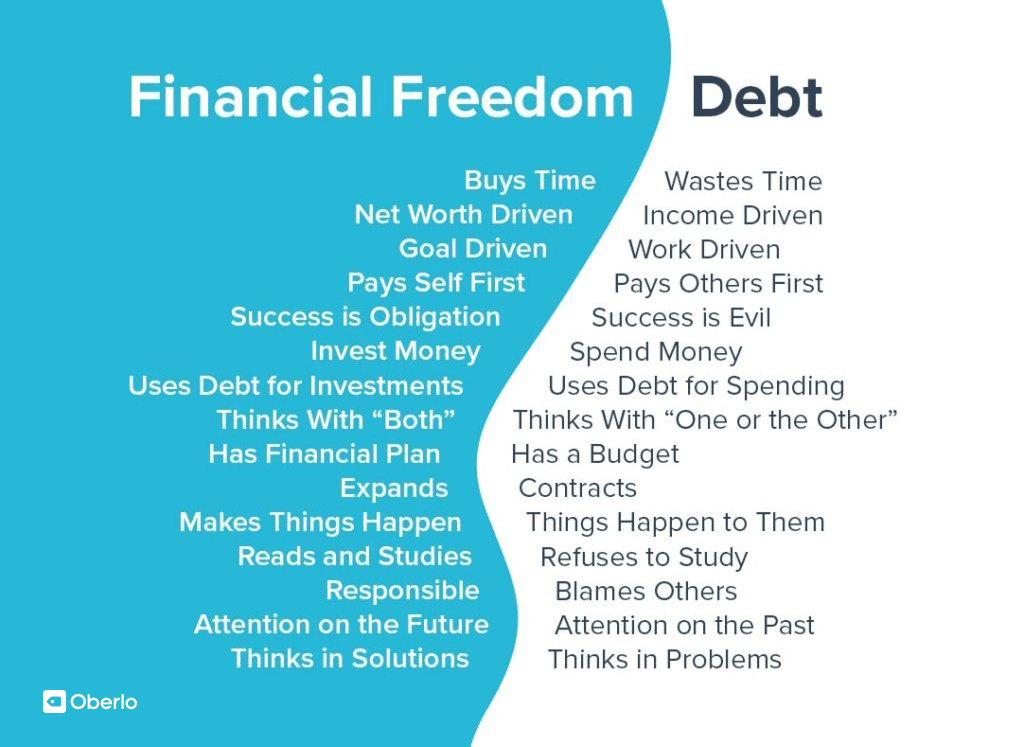Are you tired of living paycheck to paycheck and feeling constrained by your finances? In the pursuit of total financial freedom, there are various steps and strategies you can employ. From creating a budget and reducing expenses to saving and investing wisely, the journey towards financial independence may seem daunting, but it is certainly attainable. In this article, we will explore the proven paths, expert advice, and helpful resources that can guide you on your quest for stability and prosperity. Whether you are a college student looking to master the basics of money management or a seasoned professional seeking to grow your wealth, this article offers valuable insights and recommendations to help you achieve your financial goals. With the right knowledge, habits, and strategies, you can empower yourself to take control of your finances and lay the foundation for a secure and prosperous future.

This image is property of Amazon.com.
Discover the #1 System Everyone’s Raving About!
Financial Freedom
Financial freedom is a term that is often thrown around, but what does it actually mean? Simply put, financial freedom refers to a state of being where you have enough money and resources to live the life you want, without having to worry about financial constraints. It means having the ability to make choices and pursue your goals and dreams, without being limited by monetary constraints.
Unlock the Secrets of Effortless Success Right Here!
Proven Path to Achieve Financial Freedom
Achieving financial freedom may seem like a daunting task, but it is definitely possible with the right approach and mindset. The path to financial freedom involves several key steps that can help you gain control over your finances and build a solid foundation for the future.
One of the first steps on the path to financial freedom is budgeting and planning. By creating a budget, you can gain a clear understanding of your income and expenses, and identify areas where you can cut back and save. This helps you allocate your resources in the most efficient and effective way, allowing you to make progress towards your financial goals.
Another important step towards financial freedom is getting out of debt. Debt can be a major obstacle to achieving financial freedom, as it can drain your resources and limit your ability to save and invest. Creating a debt repayment strategy and developing better spending habits can help you pay off your debts and free up more money for saving and investing.
Building emergency savings is also crucial on the path to financial freedom. Having an emergency fund can provide a safety net during unexpected expenses or financial hardships. By calculating the ideal emergency fund based on your living expenses and saving strategies, you can ensure that you have enough resources to weather any financial storm.
Investing for wealth creation is another key aspect of achieving financial freedom. By making smart investment decisions and building a diversified portfolio, you can grow your wealth over time. Understanding risk and returns, and choosing the right investment strategies based on your financial goals and risk tolerance, can help you maximize your wealth accumulation.
Retirement planning is also essential for achieving financial freedom. By estimating your retirement needs and creating a retirement savings plan, you can ensure that you have enough resources to maintain your desired lifestyle once you stop working. Maximizing employer contributions and choosing the right retirement accounts can also help you build a solid foundation for your future retirement.
Income management and growth play a crucial role in achieving financial freedom. By increasing your income through strategies like negotiating salary and benefits, building multiple income streams, and investing in self-development, you can create more financial opportunities and improve your overall financial stability.
Managing expenses and saving money are also important components of financial freedom. By reducing expenses, negotiating bills and subscriptions, and adopting a frugal lifestyle, you can free up more money to save and invest. Comparison shopping and finding ways to be more cost-effective can help you stretch your dollar further and make the most of your financial resources.
Understanding investment principles and strategies is vital for achieving financial freedom. By understanding concepts like compound interest, analyzing investment opportunities, and choosing the right investment timeline, you can make informed decisions that align with your financial goals and help you accumulate wealth.
Finally, maintaining financial freedom requires regular check-ups and adjustments. By regularly reviewing your financial situation, adjusting your budget and investment plan, and protecting your assets and wealth, you can ensure that you stay on track towards your financial goals. Creating a legacy for future generations is also an important aspect of maintaining financial freedom, as it allows you to leave a lasting impact and provide financial security for your loved ones.

This image is property of image.cnbcfm.com.
Want a Simple Way to Win? Click This!
Benefits of Achieving Financial Freedom
Achieving financial freedom offers a multitude of benefits that can significantly improve your quality of life. Some of the key benefits include:
-
Peace of mind: Financial freedom eliminates the stress and anxiety associated with financial insecurity. When you are in control of your finances and have a safety net in place, you can enjoy peace of mind, knowing that you are prepared for any unexpected expenses or financial challenges.
-
Greater independence: Financial freedom provides you with the freedom to make choices based on your values and goals, rather than being limited by financial constraints. You have the independence to pursue your passions, start your own business, take time off work, or travel the world, without having to worry about money.
-
Improved relationships: Financial freedom can improve your relationships, as you are not constantly burdened by financial stress. It allows you to focus on nurturing your relationships and spending quality time with loved ones, without the distractions or tensions that financial struggles can bring.
-
Opportunities for personal growth: When you achieve financial freedom, you have the ability to invest in your personal growth and development. You can pursue educational opportunities, learn new skills, and invest in experiences that contribute to your personal and professional growth.
-
Flexibility and options: Financial freedom provides you with the flexibility and options to create the life you truly desire. You have the freedom to choose the career path that aligns with your passions, pursue hobbies and interests, and make decisions based on what truly brings you joy and fulfillment.
-
Generational wealth: By achieving financial freedom and creating a legacy for future generations, you can provide financial security and opportunities for your children and grandchildren. This allows your family to thrive and pursue their own dreams and aspirations, without being weighed down by financial burdens.

This image is property of www.oberlo.com.
The Only System You’ll Ever Need—Find Out Now!
Statistics and Trends on Financial Freedom
Financial freedom is a goal that many individuals strive to achieve, and there are several statistics and trends that shed light on the importance and challenges associated with financial freedom.
According to a study conducted by Dave Ramsey, a renowned financial expert and author, only 25% of Americans say they have a written financial plan. This statistic highlights the need for individuals to take proactive steps towards achieving financial freedom, such as creating a budget and setting financial goals.
Furthermore, the study found that the average American household has over $38,000 in personal debt, excluding mortgage debt. This indicates that debt is a significant obstacle to financial freedom for many individuals, and emphasizes the importance of strategies to reduce and eliminate debt.
In terms of retirement planning, a survey conducted by the Employee Benefit Research Institute (EBRI) found that 42% of American workers have less than $10,000 saved for retirement. This statistic highlights the need for individuals to prioritize retirement savings and take action to ensure a secure financial future.
However, there is also positive news regarding financial freedom. The study conducted by Dave Ramsey found that individuals who have a written financial plan are three times more likely to achieve their financial goals compared to those who don’t. This demonstrates the importance of creating a plan and taking actionable steps towards financial freedom.
Overall, the statistics and trends on financial freedom highlight the importance of financial planning, debt management, and retirement savings. By understanding the challenges and taking proactive steps, individuals can increase their chances of achieving financial freedom and enjoying the benefits that come with it.
Tired of Complex Methods? This is YOUR Solution!
